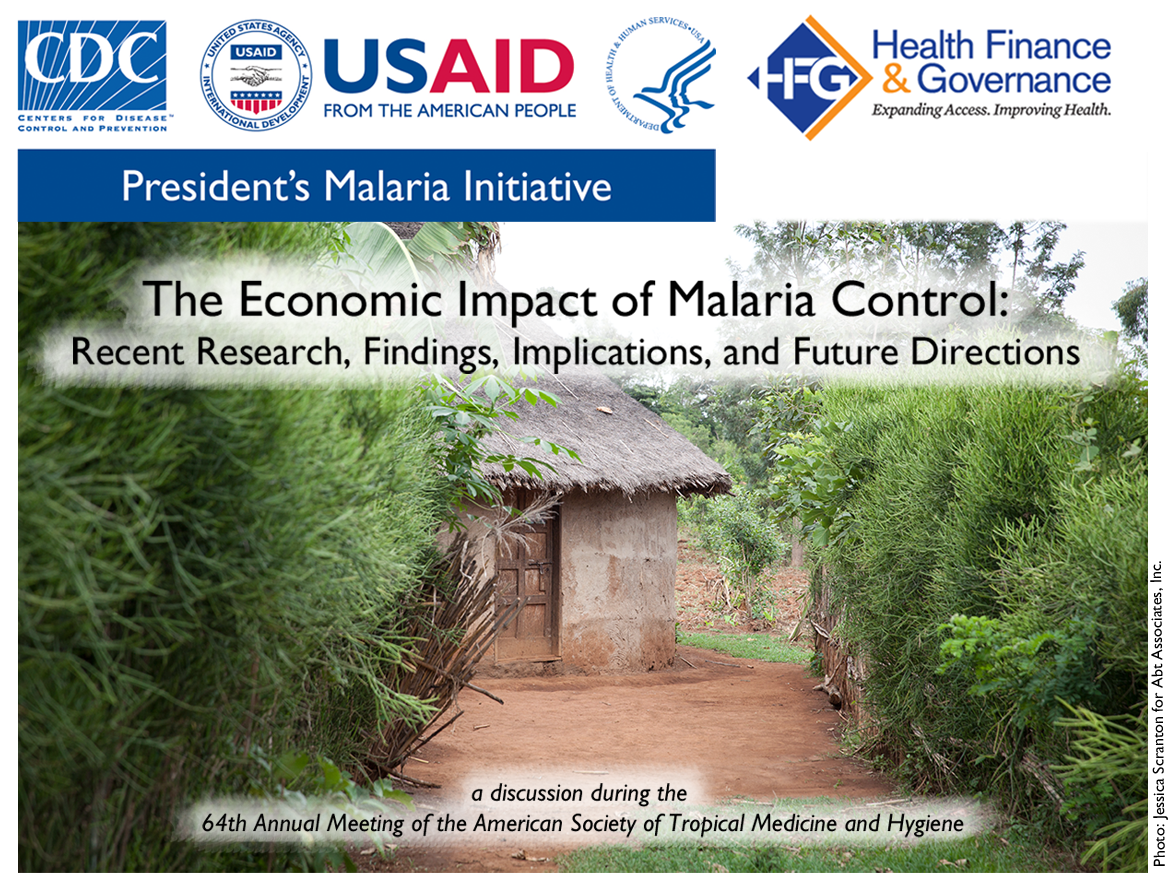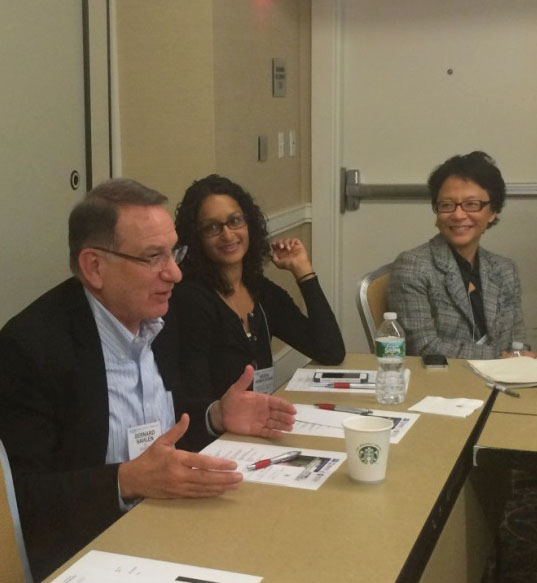The Economic Impact of Malaria Control
Categories: Announcements, Where We Work
 Recently, the President’s Malaria Initiative (PMI) and the Health Finance and Governance project hosted The Economic Impact of Malaria Control, a consultative session at the 64th Annual Meeting of the American Society of Tropical Medicine and Hygiene (ASTMH) in Philadelphia.
Recently, the President’s Malaria Initiative (PMI) and the Health Finance and Governance project hosted The Economic Impact of Malaria Control, a consultative session at the 64th Annual Meeting of the American Society of Tropical Medicine and Hygiene (ASTMH) in Philadelphia.
The session brought together senior PMI stakeholders, including Dr. Bernard Nahlen, Deputy Coordinator for PMI, Kathleen Rankin of The Bill & Melinda Gates Foundation, Dr. Regina Rabinovich, Director of the Malaria Elimination Initiative with The Barcelona Institute of Global Health (ISGlobal), and Suzanne Powell of PMI and the Centers for Disease Control and Prevention. Participants from PATH, the World Health Organization, the Swiss Tropical Institute, and several universities also joined.
The meeting was convened to facilitate dialogue among health economists regarding the impact of malaria control, to share economic findings across recent research, to examine gaps in research, and to discuss policy implications. In the context of malaria elimination and eradication, participants discussed the need for malaria economic data for policy, advocacy, and improved implementation of malaria control. Participants agreed on the importance of bringing together a community of practice and sharing the evidence generated from malaria economic research.
During a facilitated discussion about the current malaria strategy and investment, Dr. Nahlen raised an important point:
“The dilemma is the more successful the disease program, the more difficult it will be to keep the same level of (donor) support. This is the value of pushing towards elimination. Otherwise, likely in a decade, we’ll see malaria coming back with a vengeance.”
In addition to the high-level discussion, several practitioners presented current findings from the field to highlight the role strong economic data can play in sustainable malaria programs. Dr. Louis Niessen of the Liverpool School of Tropical Medicine in Kenya presented an overview of current research being carried out in western Kenya. This research will review retrospective data for the past 15 years to examine the micro-economic outcomes of malaria control. Dr. Sian Clark of the London School of Tropical Medicine and Hygiene also presented her research on malaria in school children and the impact of malaria interventions on education outcomes. These presentations were selected to update the group on potentially groundbreaking research in Kenya and to share thoughts about lessons learned and the role of economic research.
Going forward, the HFG project will reach out to a wider group of malaria economics researchers to convene a broader discussion and application of economic research. In addition, HFG will work with this community of practice to develop a guide for program managers on incorporating economic data collection in malaria programs based on the best methods and approaches.




